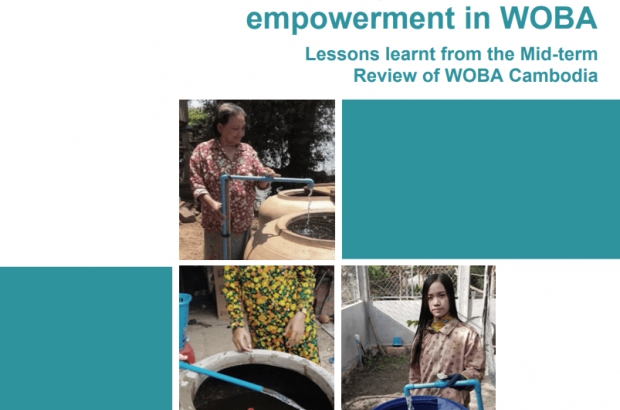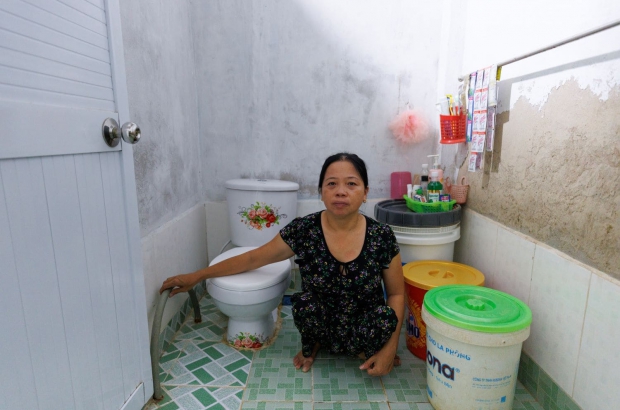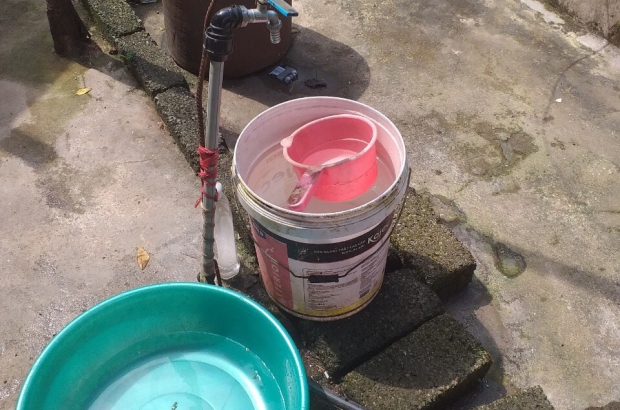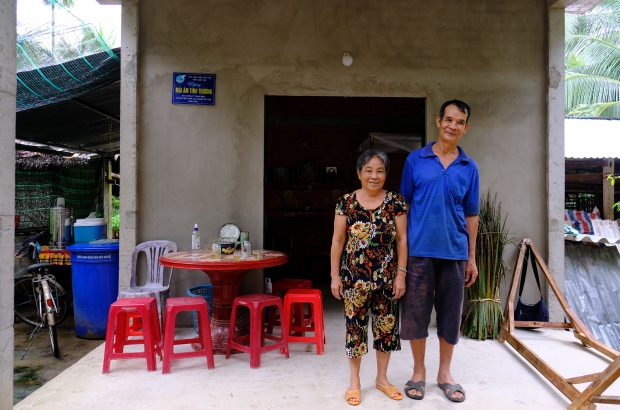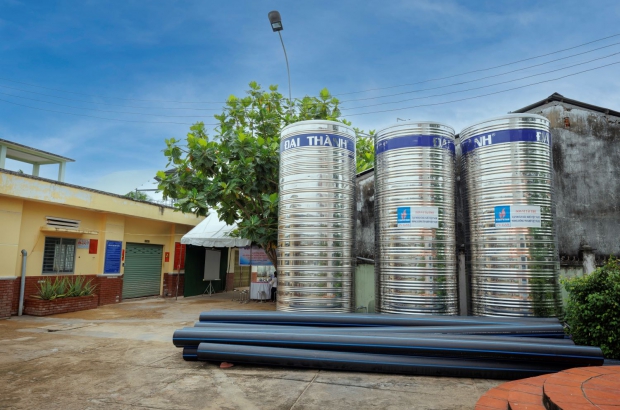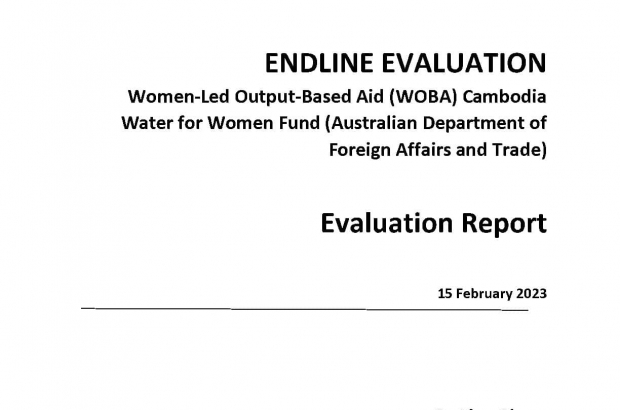2618
Gender equality and women’s empowerment in WOBA: Lessons learnt from the Mid-Term Evaluation
WOBA can be said to contribute to women’s leadership and empowerment in WASH through recruitment of the Committee for Women and Children (CCWC) women to the Committee of Commune Council, and the CCWC members’ self-perception that they are change agents. At the same time, there remains a gendered view about women in WASH as domestic activities. This leaning note discusses some of the gaps in reaching outcomes of women’s empowerment in WOBA. It offers some recommendations to promote gender transformative mindset among partners and improve gender empowerment for CCWC women. More research is needed to understand gender and empowerment for all women involved in WOBA including water operators, Commune Council members, volunteers, households, and the CCWC.
2413
Mid-term Review Report: Women-Led Output-Based Aid (WOBA) Vietnam
This report presents and discusses the findings of the mid-term evaluation of WOBA Vietnam. The evaluation assesses WOBA’s progress towards its planned outcomes and support learning by exploring the effectiveness of the strategies and activities implemented from June 2018 to June 2021. The report explores some initial indications of impacts and sustainability. It provides important recommendation in the ongoing implementation of the program and progress towards the project’s end-of-program outcomes.
2235
Report of the endline evaluation of Women-Led Output-Based Aid (WOBA) Vietnam
The purpose of the Endline Evaluation is to assess the WOBA project using the OECD Development Assistance Committee (DAC) evaluation criteria including Relevance – Effectiveness – Efficiency – Impact - Sustainability. The theory of change defined for WOBA Vietnam has been used to define evaluation priority areas of inquiry which in turn links to the key evaluation questions. The priority areas of this Endline Evaluation are: 1. WASH services implemented using OBA focusing on the water component 2. Gender equality and social inclusion approach and outcomes 3. Fecal sludge management pilot 4. Climate resilient water safety plan pilot
2398
Impacts of WOBA for marginalized households in rural Viet Nam. Lessons learnt from the Mid-Term Review of WOBA Viet Nam
This learning note is based on the findings from the mid term review of WOBA Vietnam, to share the knowledge and lessons learned about the beneficiaries’ WASH needs and the intended/unintended impacts of the WOBA project for the beneficiaries who are the marginalized households in the rural Vietnam.
2658
Financial health of private sector piped water businesses in rural Vietnam. Learning note
This paper presents and discusses the results of a survey with Vietnamese private sector piped water suppliers about their businesses’ financial risks and viability, and their desire to provide services to the poor and vulnerable households in rural Vietnam.
2337
End-line Evaluation Report for Women-Led Output-Based Aid (WOBA) Cambodia
The evaluation report focuses on all aspects of the project programming, including sanitation, piped water connection, climate resilient water safety plan pilot, FSM pilot, menstrual health hygiene training, and other WASH related trainings.

